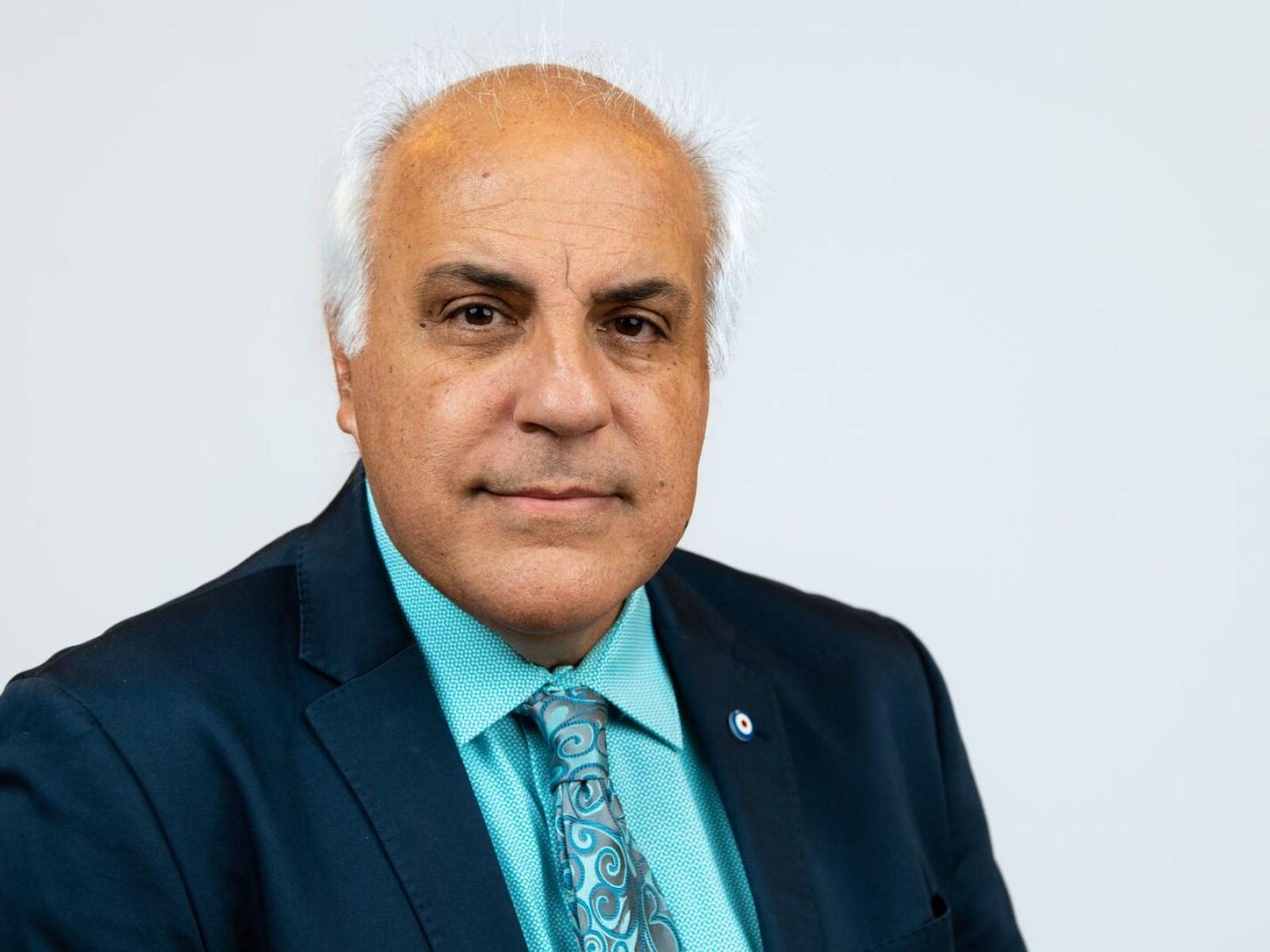Xantheas Honored with Gauss Professorship
The Göttingen Academy of Sciences and Humanities selected Xantheas for this award

Lab Fellow Sotiris Xantheas was recently selected for the Gauss Professorship by the Göttingen Academy of Sciences and Humanities.
(Photo by Andrea Starr | Pacific Northwest National Laboratory)
Pacific Northwest National Laboratory (PNNL) Lab Fellow Sotiris Xantheas was recently selected for the Gauss Professorship by the Göttingen Academy of Sciences and Humanities in Göttingen, Germany. Named after the famous German mathematician Carl Friedrich Gauss, the professorship is awarded to exceptional researchers from outside of Germany.
Through this professorship, Xantheas will continue his work with Professor Alec Wodtke at the University of Göttingen and the Max Planck Institute for Multidisciplinary Sciences in Göttingen. Xantheas and Wodtke began their collaboration as part of a visiting fellowship that Xantheas received from the International Center for Advanced Studies of Energy Conversion.
“I am honored to receive this professorship,” said Xantheas. “I am excited to tackle challenges in heterogeneous catalysis with Professor Alec Wodtke’s group using the new methodology and codes we developed in collaboration with the University of Washington.”
At PNNL, Xantheas leads the Computational and Theoretical Chemistry Institute (CTCI), which promotes fundamental computational chemistry research to tackle grand challenges in energy and the environment. He also leads the Department of Energy, Basic Energy Sciences program Scalable Predictive Methods for Excitations and Correlated Phenomena (SPEC) project—which produces open-source computational modeling software libraries to simulate spectra of complex systems. Additionally, he holds a joint appointment with the Department of Chemistry at the University of Washington.
Xantheas is renowned in the chemical physics community, particularly for his expertise in electronic structure calculations on the nation’s largest computers. His work ranges from investigating how water molecules interact using neural networks to examining the many-body expansion for metals. Through the CTCI, Xantheas works closely with researchers across many disciplines—from data science to materials science—to develop a computational infrastructure to support the application of machine reasoning to complex problems in chemistry.
Published: March 28, 2023